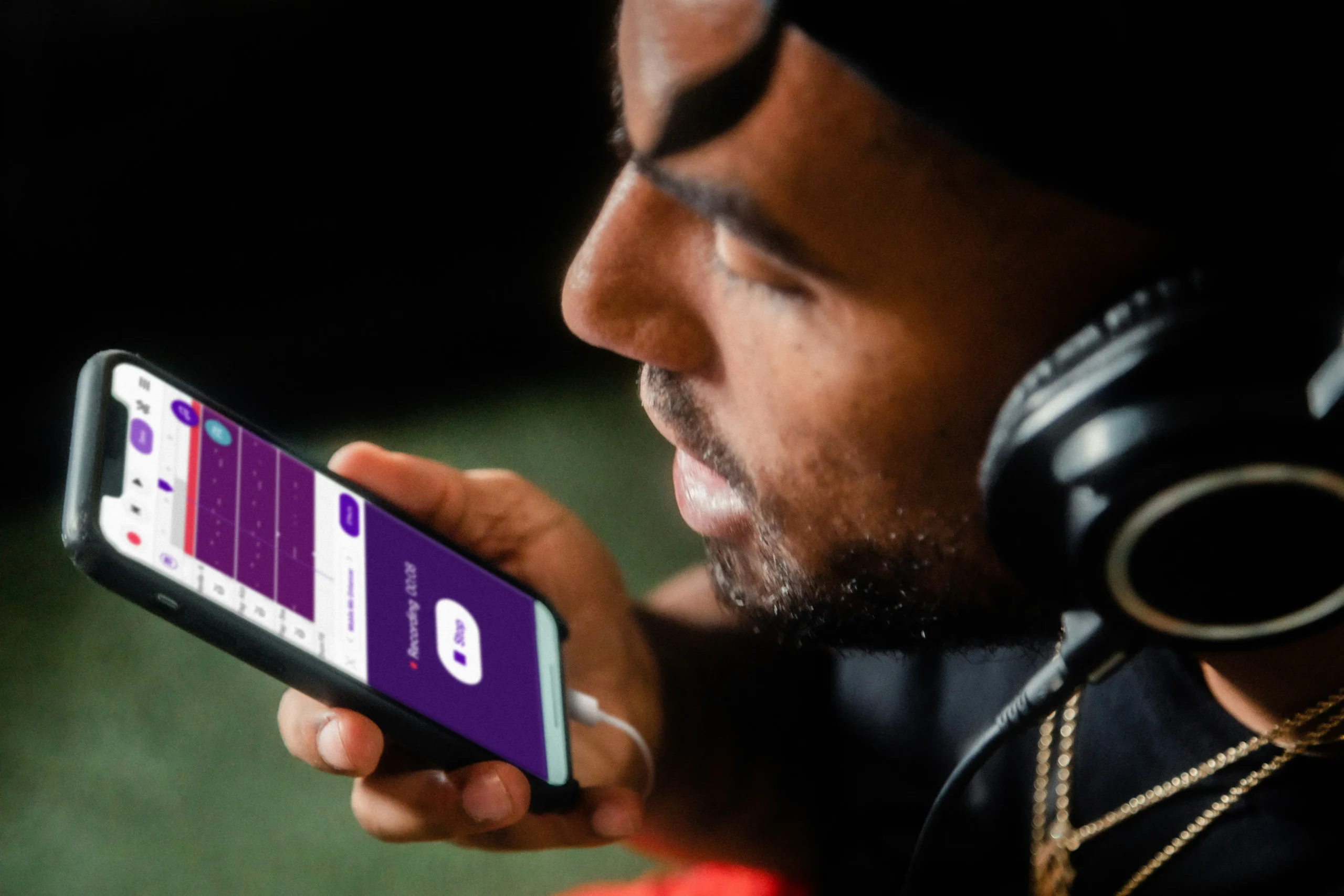Games have become one of the most popular forms of entertainment, attracting millions of players of all ages. However, this popularity has led scammers to target this niche by designing scam games to exploit players’ trust, especially among younger audiences.
A recent analysis by cybersecurity researchers at Kaspersky revealed a troubling trend: Over 132,000 users, many of them young players, have been targeted by cyberattacks linked to gaming scams. This post explains how they work, the common methods scammers use, and some easy steps you can take to protect yourself.
Need support after a scam? Join our community today.
What Are Scam Games?
Scam games are intentionally fraudulent schemes disguised as legitimate gaming experiences, designed to exploit players for financial gain or to steal personal data. Gaming scammers often trick players by pretending to be official platforms, offering fake rewards, or creating counterfeit versions of popular games.

Learn how to detect fraudulent messages and emails, and identify the warning signs so you don’t fall for scam games.
How to Recognize Common Scam Games?
Scammers frequently target players, especially younger ones, as gaming is most common among teens—85% of US teenagers play video games, according to the Pew Research Center. Many lack the knowledge to spot scams, making them particularly vulnerable. Some common tactics include:
- False Promises of Free or Exclusive Rewards: Scammers often offer free in-game currency, rare items, or exclusive rewards to convince players. For example, fake promotions for “free Robux” on Roblox have led players to phishing websites that steal login credentials or install malware.
- Cloned Websites and Phishing Ads: Scammers replicate legitimate games or websites to trick players into downloading harmful software or spending money on fake products. As an example, during the launch of Axie Infinity, several fake websites scammed players into purchasing fake NFTs or tokens.
- Fake Currency Generators: Scammers advertise programs claiming to offer unlimited in-game resources. These scams often require players to share account details, leading to account breaches and financial theft. For example, in Clash Royale, fake gem generators have hacked accounts and stolen payment information.
- Impersonating Influencers or Support: Fraudsters create fake profiles on social media platforms, pretending to be gaming influencers, developers, or even official support accounts. On Discord, scammers impersonating Star Citizen moderators have promised discounted virtual ships, only to simply disappear after payments were made.

Discover more about the scam website detectors to start identifying phishing sites before sharing sensitive data like passwords or card numbers.
6 True Stories of Scam Games and Their Fallout
Now that you know how scammers make money in the gaming world, here’s a list of the most popular scam games from recent years and the serious consequences they left for players:
1. The Day Before
Released in December 2023 for $40 on Steam, The Day Before attracted attention, with streams catching half a million viewers. Marketed as a survival MMO with impressive visuals and gameplay, the final product shocked players with severe bugs and an unexpected shift to a shooter genre.
Many fans were disappointed because the trailers and early advertising didn’t match the game that was released. This controversy has led to debates about transparency in-game marketing.
2. Star Citizen
Announced in 2012, Star Citizen is an ambitious space simulation project that has raised over $700 million through crowdfunding. Despite its record-breaking funding, the game is still incomplete after more than a decade of development.
The current sale of virtual ships, sometimes costing thousands of dollars, has caused skepticism among players who question whether the game will ever be finished. Developers claim progress is ongoing, but critics argue that the focus on monetization dominates the completion of promised features.
3. Aliens: Colonial Marines
Released in 2013, Aliens: Colonial Marines was highly anticipated due to its pre-release demos showcasing immersive environments and advanced AI. The final game, however, delivered downgraded graphics, unresponsive AI, and technical flaws.
A misplaced line of code in the AI system, which led to erratic behavior, became infamous in gaming circles. Fans accused the developers of overhyping the game, while lawsuits and backlash highlighted the industry’s need for accountability in advertising.
4. Fallout 76
Launched in 2018, Fallout 76 was intended to bring a multiplayer twist to the beloved franchise. Instead, it was plagued by bugs, limited content, and outdated graphics. Adding to the controversy, a collector’s edition advertised with premium merchandise instead included poorly made items, sparking disappointment among buyers.
Bethesda’s handling of the situation, including delayed fixes and unfulfilled promises, left many players questioning the company’s commitment to quality and fan satisfaction.
5. War Z
Initially released in 2012 and later renamed Infestation: Survivor Stories, War Z was marketed as a survival game featuring expansive maps and dedicated servers. Players quickly discovered that many advertised features were nonexistent.
The game’s incomplete state, coupled with developers banning critical voices on forums and refusing refunds, led to its downfall. War Z has become a reminder tale for gamers about the risks of purchasing unfinished products.
6. Duke Nukem Forever
Following 15 years of development, Duke Nukem Forever launched in 2011, only to be criticized for its obsolete mechanics, offensive humor, and lack of innovation. The game included crude jokes and controversial scenes that alienated both new and longtime fans.
Developers claimed they had adhered to the original vision for the game, but the final product felt like a reminder of a past era. Many gamers viewed it as a missed opportunity to revive a beloved franchise with modern standards.

Have questions about dealing with scams? Contact us for support.
Tips to Detect and Avoid Scam Games
To avoid falling for a scam game that promises to be the next big hit or trusting recommendations from questionable users, here are some practical tips to help you spot warning signs and protect your data and money:
1. Research Before Downloading a Game
Before you download a game, take a moment to investigate the developer and its reputation. Look for reviews on trustworthy platforms such as app stores, gaming forums, or websites such as Metacritic.
If the game has a suspiciously low number of downloads or positive reviews with little detail, it could be a red flag. Legitimate games usually have a mix of reviews.
2. Stick to Official Sources
Only download games from official app stores, such as Google Play or the Apple App Store, or directly from the developer’s verified website. Third-party websites and unauthorized marketplaces are often breeding grounds for unofficial games, malware, and phishing scams.
3. Check Game Permissions
Before you install a game, take a look at its permissions, since unusual or unrelated requests might mean it’s a scam trying to access your personal data. For example, a simple puzzle game doesn’t need access to your phone calls or location. Question unusual requests and reject installations if permissions seem unnecessary or invasive.
4. Take Care of Unrealistic Offers
Games promising free in-game currency, rare items, or exclusive rewards with little effort are a common tactic used by scammers. These offers may direct players to phishing websites or prompt them to download malicious software. Remember, legitimate games require players to earn rewards through gameplay or make secure purchases.
5. Use Strong Security Practices
Secure your gaming accounts with strong, unique passwords and enable two-factor authentication (2FA) when available. 2FA adds a layer of security by requiring a verification code sent to your phone or email. This ensures that even if someone gains access to your password, they cannot log in without the secondary code.
Avoid credit card fraud by learning these fraud detection techniques to protect your money.
CDN: Your Guide Against Scam Games
From fake rewards to phishing schemes, scam games are targeting players more than ever, especially the younger ones. Kaspersky experts report a 30% rise in cyberattacks targeting users through popular children’s games during the first half of 2024.
To help with this, Cryptoscam Defense Network shares tips to keep your accounts safe offers a friendly community to exchange experiences, and provides useful tools to help you steer clear of scam games.
We Want to Hear From You!
Fraud recovery is hard, but you don’t have to do it alone. Our community is here to help you share, learn, and protect yourself from future frauds.
Why Join Us?
- Community support: Share your experiences with people who understand.
- Useful resources: Learn from our tools and guides to prevent fraud.
- Safe space: A welcoming place to share your story and receive support.
Find the help you need. Join our Facebook group or contact us directly.
Be a part of the change. Your story matters.
Frequently Asked Questions (FAQs) About Scam Games
What Should I Do If I Suspect I’ve Been Scammed by a Game?
If you suspect a scam game, immediately:
- Report the game to the platform where you downloaded it (e.g., Google Play or Apple App Store).
- Contact your bank or payment provider to secure your accounts and request chargebacks if necessary.
- Scan your device for malware using antivirus software.
- Share your experience on gaming forums or review platforms to warn others.
How Do I Recognize If a Game’s Ad or Website is Fake?
Fake ads or websites often have slight grammar errors in the URL or text, unprofessional design, or exaggerated claims like “Get Free Currency Now!” They may also request login credentials or payment details upfront. Always verify the game’s official website and avoid clicking ads or links from unknown sources.
Can Scam Games Be on Legitimate Platforms?
Yes, scam games can be on trusted platforms like the Google Play Store, Apple App Store, or Steam. Fraudulent designers sometimes exploit these marketplaces by creating fake games that copy popular titles. Verify the developer’s name, read reviews, and ensure the app is from an official source.
Photos via Pexels.







